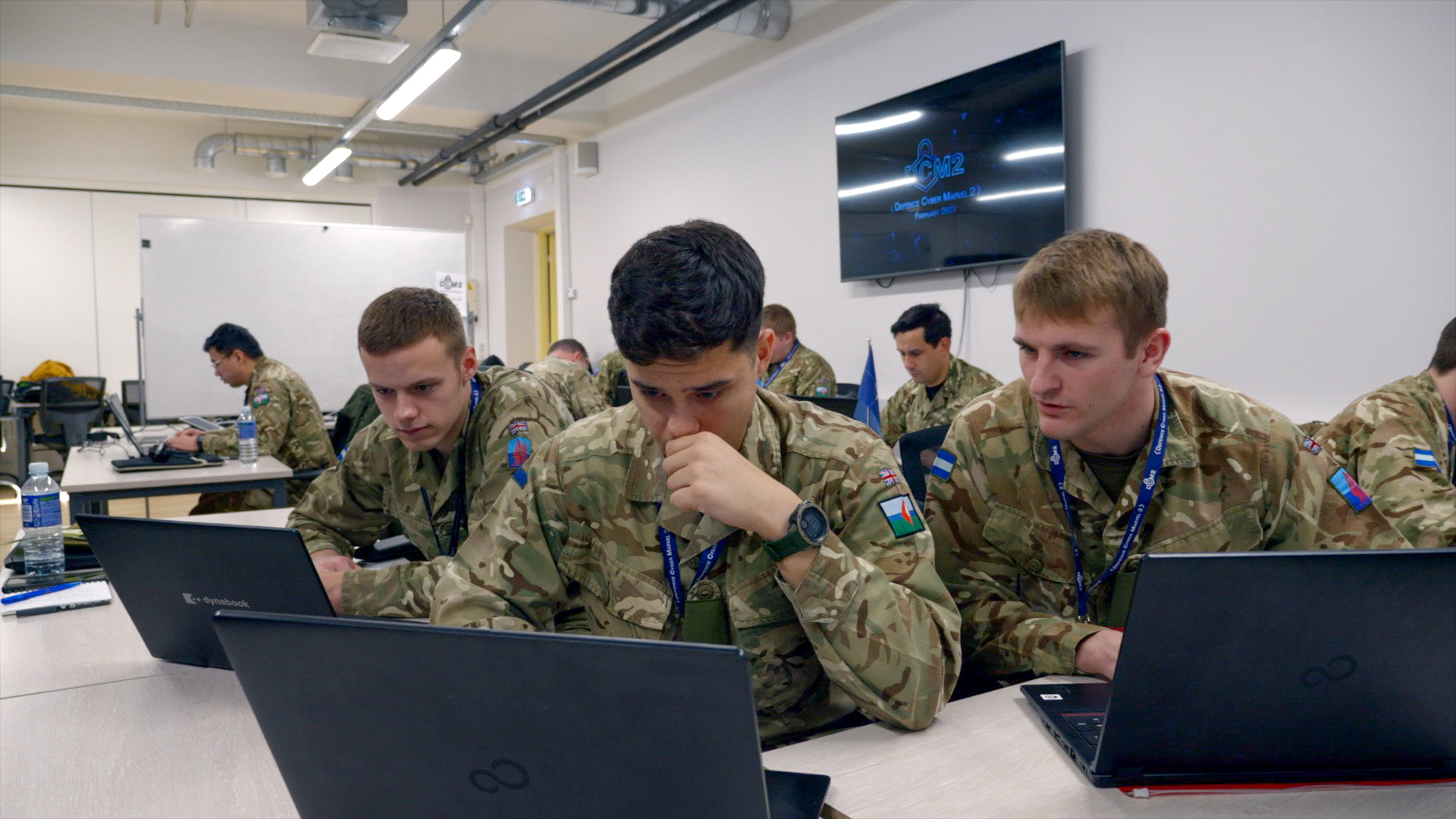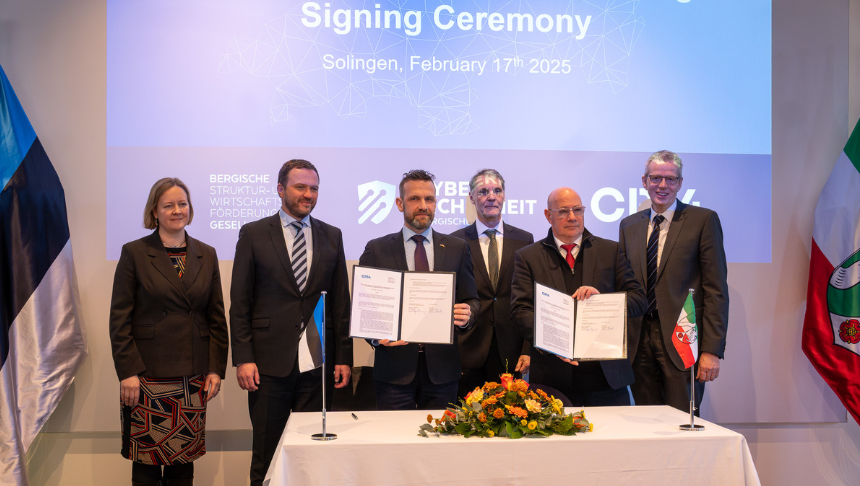UK testing complex cyber threats on CR14's Cyber Range
The largest Western Europe-led cyber exercise has taken place in Tallinn, with 34 teams from 11 countries, including Ukraine, participating in a live-fire cyber battle.

Organised by a team of cyber specialists from the British Army, Defence Cyber Marvel 2 (DCM2) was the culmination of more than 12 months of training for more than 750 cyber specialists, including Defence personnel, government agencies, industry partners, and other nations. Hosted and powered by CR14 in Estonia, the exercise saw teams from across the world respond to common and complex simulated cyber threats, including attacks to networks, industry control systems and unmanned robotic systems - simulating some of the tactics Russia used to disrupt Ukrainian cyberspace in the early days of the invasion one year ago. Ran as a seven-day competition, participants were judged on the effectiveness and speed of their response and how quickly they identified and adapted to new threats - vital for developing warfighters for the digital age.
Defence Secretary, Ben Wallace, said:
“The modern battlefield is evolving at an unprecedented pace; it is therefore vital that our personnel are trained to adapt quickly in this crucial domain and can recognise cyber threats with capability and speed.”
Many teams were based in their home countries but were virtually connected to a cyber range controlled in Tallinn, Estonia, enabling more countries to participate.
Allowing personnel from across the Armed Forces to build their skills within the cyber and electromagnetic domain, the event also offered the opportunity to share learning and best practice across the Armed Forces and with other nations taking part including Italy, Japan, Kenya and Oman.
Colonel Ian Hargreaves, Chair of the Army Cyber Association, said:
“The Army Cyber Association was set up by Royal Signals officers, prior to the formation of 13 Signal Regiment, as a cyber operations professional development network. It is volunteer run and entirely inclusive for any Service person who wants to develop their cyberspace knowledge and skills.
“Our focus has always been talent identification, recognition and development with a big wraparound of innovation. We must innovate to stay ahead of those that would wish us harm and Defence Cyber Marvel 2 is the next evolution of our pioneering collective education.” The exercise ensured all taking part understand the potential and risks that cyberspace provides and gave them the opportunity to experiment and develop their cyber skills. It was designed to stretch the most experienced cyber battle-hardened specialists in UK Defence. Lieutenant General Tom Copinger-Symes, Deputy Commander of Strategic Command, said: “Events like Defence Cyber Marvel showcase the talent we already have in Defence. They get to exercise and learn with folk from a vast array of different nations, backgrounds and specialisations - all united by a common purpose – to hone their skills to a fine edge in order to protect our people, our prosperity and our principles.
“At UK Strategic Command, we’re committed to finding and nurturing individuals with those skills, especially those who are about to finish their studies and are eager for a unique challenge on the front line of UK’s defence.”
Defence is committed to providing its personnel with the skills needed to respond to non-traditional threats with the establishment of the Defence Cyber Academy and the launch of the Cyber Aptitude Assessment being designed to identify and foster talent.
CR14 to Lead €60M European Defence Project to Reinvent Cyber Training Across the EU
A newly approved €60.4 million project, funded by the European Defence Fund (EDF 2024), is about to reshape how cyber forces across the EU train, collaborate, and respond to emerging threats.
Read more

CR14 to Lead €60M European Defence Project to Reinvent Cyber Training Across the EU
A newly approved €60.4 million project, funded by the European Defence Fund (EDF 2024), is about to reshape how cyber forces across the EU train, collaborate, and respond to emerging threats.
Building Cyber Resilience: CR14 and Bergische Struktur- und Wirtschaftsförderungsgesellschaft Join Forces
Cyber threats do not recognize borders, and neither should our defenses. As the digital landscape evolves, cross-border collaboration becomes essential in strengthening cybersecurity resilience. In line with this mission, CR14 has signed a Memorandum of Understanding (MoU) with Bergische Struktur- und Wirtschaftsförderungsgesellschaft mbH, marking the beginning of a strategic partnership between Estonia and Germany to advance cybersecurity innovation.
Read more

Building Cyber Resilience: CR14 and Bergische Struktur- und Wirtschaftsförderungsgesellschaft Join Forces
Cyber threats do not recognize borders, and neither should our defenses. As the digital landscape evolves, cross-border collaboration becomes essential in strengthening cybersecurity resilience. In line with this mission, CR14 has signed a Memorandum of Understanding (MoU) with Bergische Struktur- und Wirtschaftsförderungsgesellschaft mbH, marking the beginning of a strategic partnership between Estonia and Germany to advance cybersecurity innovation.